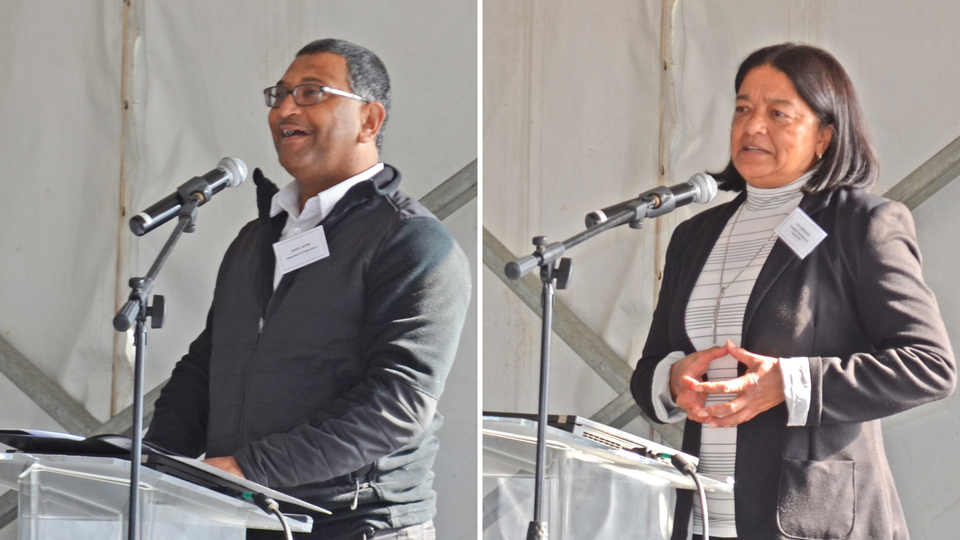Pedi's Urban Agriculture Academy and Waste to Food Initiative Launched
- Pedi
- Jun 5, 2017
- 2 min read
Updated: Sep 21, 2023

In a groundbreaking move aimed at transforming the face of urban agriculture, the Philippi Economic Development Initiative (Pedi) launched the Philippi Urban Agriculture Academy (PUAA) and the Waste to Food project on a mission to combat poverty, unemployment, and promote sustainability.
The joint launch event saw the presence of prominent figures, including Pedi CEO Thomas Swana, Pick 'n Pay Director for Transformation Suzanne Ackerman-Berman, Waste to Food co-founder Phumlani Dlongwana, and Deputy Director General in the Western Cape Department of Agriculture, Darryl Jacobs.
The focal point of Pedi's Academy is its innovative organic vegetable growing system, which prioritizes organic composts over fertilizers, earthworm leachate over pesticides, and flush irrigation over traditional methods. This ecological approach aims to revitalize the economically challenged area of Philippi.
At the same event, the Waste to Food initiative, a R9 million project, was unveiled. This initiative focuses on processing organic waste into high-quality compost through the action of worms, contributing to both sustainability and waste reduction.
Darryl Jacobs, Deputy Director General in the Western Cape Department of Agriculture, expressed his enthusiasm for the projects, highlighting the potential for agriculture and agri-processing to be a key driver of economic growth. He stated, "Pedi through this project will help to stimulate urban agriculture and help to create jobs for young people."

The collaborative effort behind these projects involved key stakeholders, including the Western Cape Department of Agriculture, the Rotary Club of Kirstenbosch, and Haw & Inglis, who provided invaluable support in building the project and developing bridging training programs.
Pedi CEO Thomas Swana emphasized the significance of external partnerships, calling the project one of the most exciting initiatives the area has seen. He envisions the creation of a cohort of emerging farmers who will eventually become productive entrepreneurs in the Philippi Horticultural Area.

The PUAA, which spans 2500 square meters of covered farming tunnels, was made possible through a partnership with the Dhladhla Foundation, which donated the land. Additionally, Pedi is working on a partnership with CEO for Business Activator, Egbert Wessels, for the incubation, training, and development of new business owners.
Inside the farming tunnels, a revolutionary drainage system connects growing beds to worm composting hammock beds run by Waste to Food. The system recycles water efficiently, drawing from the Cape Flats aquifer, ensuring sustainable irrigation practices.
The growing beds are already yielding impressive results, thanks to training provided by organic farming consultant Maryna Booysen. As the team leaders gain expertise, they will become trainers for future emerging farmers at the academy, receiving business, entrepreneurship, and leadership training.
Pedi's visionary initiative aims to empower the Philippi community by providing young people with farming opportunities, skills, and a chance for dignified work. The ripple effect of this project is expected to extend to community gardeners, school gardens, and early childhood development gardens, ultimately fostering a brighter future for Philippi.
The launch of the Philippi Urban Agriculture Academy and Waste to Food project marks a significant step toward sustainable urban farming, economic development, and a more prosperous future for Philippi.
Comments